Photographs: Mukesh Gupta/Reuters Shreekant Sambrani
Vegflation is no longer an aberration but a recurrent problem. Systematic, not sporadic, counter cyclical policies must be in place to check the power of the traders. says Shreekant Sambrani.
Somebody help. Narendra Modi and Arun Jaitley are held hostage, not by jihadists, recalcitrant opposition, international capital or the ever-erratic monsoon, but by faceless, nameless manipulators of Nasik, Navi Mumbai and Azadpur markets.
The "raw" terror they have let loose resounds in the corridors of government as well as media power.
Cutting to the chase, the Indian economy will not budge until investors return.
That will not happen unless inflation is tamed. And the vital organs of that beast are in the food basket, with the heart beating to the rhythm of the greens.
That is a simplification, but only just.
Please click NEXT for more...
Vegflation should be tamed before it kills the economy
Image: A labourer unloads sacks of onions from a supply truck at a vegetable wholesale market in Chennai.Photographs: Babu/Reuters
The prime minister has reacted quickly (unlike his predecessor) and met with key ministers and officials.
The minimum export prices of onions and potatoes are up. Editorials call it a knee-jerk reaction, and suggest yet again the scrapping of the agriculture produce marketing committee (APMC) Acts of various states. Business Standard editorially advised
"The farmers need to be incentivised to [grow more vegetables]" (June 19, 2014).
Another piece of accepted wisdom is that increasing incomes raise the demand for vegetables at a faster rate, causing the price spikes.
I disagree wholly, not with the underlying logic but the conclusions.
Please click NEXT for more...
Vegflation should be tamed before it kills the economy
Image: Customers shop inside a food superstore in Ahmedabad.Photographs: Amit Dave/Reuters
I cut my professional teeth researching commodity systems. Extensive and repeated field research through the 1980s and 1990s generated abundant evidence to support the hypothesis of an informal vegetable grid approaching perfect competition, with no entry, exit or information barriers.
Seasonal variations in production and supply caused anticipated changes in prices, which smoothed out over the cycle.
Competition prevailed all the way to the semi-wholesale market, and one could predict market trends with an unusual degree of confidence.
APMCs mostly facilitated, rather than hindered, the competitive market.
...
Vegflation should be tamed before it kills the economy
Image: A labourer rests next to stacked sacks of paddy crop at a wholesale grain market in Chandigarh.Photographs: Ajay Verma/Reuters
Things began changing after 2000, gaining momentum in the current decade.
That made me conclude that "Everyone in the chain, from the producer to the one-time fiercely competitive last retailer, indulges in limited hoarding, collusion and oligopolistic behaviour, not countered by the unorganised buyers" (Business Standard, November 17, 2013).
This had begun by stealth following the onion crisis of the 2009 winter, but traders and middlemen, emboldened by the do-nothing government then, openly and aggressively resorted to bending prices to their will.
The 2013 vegflation and its spectacular impact on the electoral outcome are of too recent an origin to need further analysis.
I had also forewarned that while the runaway inflation will propel Modi to victory, it would come back to haunt him if he could not rein in the prices soon.
The agitated aam voters a mere month after the election results bear this out.
Please click NEXT for more...
Vegflation should be tamed before it kills the economy
Image: A man carries a sack filled with maize at a wholesale vegetable market in Ahmedabad.Photographs: Amit Dave/Reuters
That staunch champion of farmers and the former agriculture minister Sharad Pawar argued that freakish weather disrupted production and caused price fluctuations.
Others said that production had simply failed to keep pace with rising prosperity of consumers.
The same factors are being trotted out now, with the supposed damage to the vegetable crop last rabi and the impending threat of the El Niño induced monsoon shortfall.
Unimpeachable production and price statistics suggest otherwise.
Vegetable production went up from 129 million tonnes (mt) in 2008-09 to 162 mt in 2012-13.
The 25 per cent increase in five years is significant. Yields, too, improved by 15 per cent.
Production and productivity of potatoes and that perennial villain, the common onion, went up almost identically.
The farmers were thus, sufficiently incentivised, notwithstanding the APMCs.
...
Vegflation should be tamed before it kills the economy
Image: A vendor rests as he waits for customers at a vegetable market in Mumbai.Photographs: Vivek Prakash/Reuters
But price increases dwarfed these achievements. Vegetables wholesale prices went up by over 50 per cent and consumer prices by about 70 per cent in this period.
In 2013, the price rise was of a similar magnitude in a single year.
Onion price behaviour is another indicator of the supply-demand calculus being manipulated.
A five per cent reduction in its supply supposedly causes a 50 per cent increase in its price.
While its per capita availability trebled in the last decade (faster than the per capita income, which doubled), its price rose fourfold in the same period.
An effort to explain this through economic theories surely merits the Nobel.
Please click NEXT for more...
Vegflation should be tamed before it kills the economy
Image: An onion vendor.Photographs: Danish Siddiqui/Reuters
The elephant in the room is thus, price manipulation.
That is not as surprising as it might sound, given the difficulties in hoarding perishables.
A conjectured, but nearly accurate scenario involves potatoes and onions, the two leading vegetables.
Potatoes can be and are stored under controlled conditions. Onions last up to six months. A handful of traders in the three central wholesale mandis,
Nasik in the growing area and Navi Mumbai and Azadpur (Delhi) in the consuming areas, rule the entire vegetable economy.
They own or control large volumes of potatoes and onions. They collusively decide the quantum and timing of stock release to stoke up prices.
As early as 1989, we discovered that the trade could instantly track arrivals and auction prices.
This has doubtless become even more effective now. The government monitoring through minor functionaries' reports even at daily intervals is no match.
The traders' hold over their respective market extends to controlling prices of other vegetables as well, since their buyers depend on them for all their requirements.
Please click NEXT for more...
Vegflation should be tamed before it kills the economy
Image: A farmer carries cucumbers from his field to sell in the markets.Photographs: Reuters
Oligopolistic cartels thus, govern the entire trade chain. I have reported a welter of anecdotal evidence in support in my earlier columns.
Government intervention is confined to crises and today comprises setting minimum export prices.
As produce exports are minuscule compared to the domestic demand, the impact of such measures is minimal.
Vegflation is no longer an aberration but a recurrent problem.
Systematic, not sporadic, counter cyclical policies must be in place to check the power of the traders.
The government needs to make strategic seasonal purchases of undisclosed quantities of just onions and potatoes, and release or threaten to release them when the situation so warrants.
This is the same approach everyone is advocating to bring grain prices - which are not as volatile and bothersome as those of vegetables - in line. What works for rice would work just as well for potatoes.
Please click NEXT for more...
Vegflation should be tamed before it kills the economy
Image: A farmer works in his vegetable field.Photographs: Mukesh Gupta
And onions. More importantly, it will establish governmental authority and determination.
The US has long maintained strategic stockpiles of various commodities to deal with just such eventualities.
For the immediate period, the government should have little difficulty in identifying key players.
The prime minister could summon them for a meeting, and while talking softly, leave them in no doubt that the government carried a big stick to make them de-hoard.
That would be a snap compared to dealing with pesky governors and foreign-funded NGOs. And it would deliver visible and gratifying results.
Doing this even at this late hour is eminently feasible.
There is little option, anyway. Inflation is a two-edged sword.
Hurt in the pocketbook, the aam aurat could start venting her wrath on the new government.
Onions don't respect ideology while bringing tears.

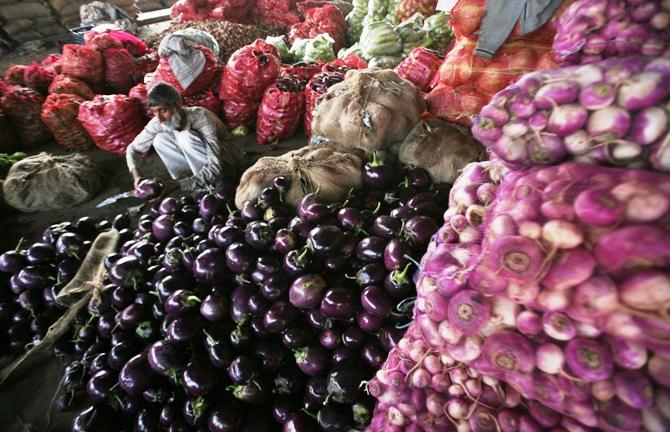

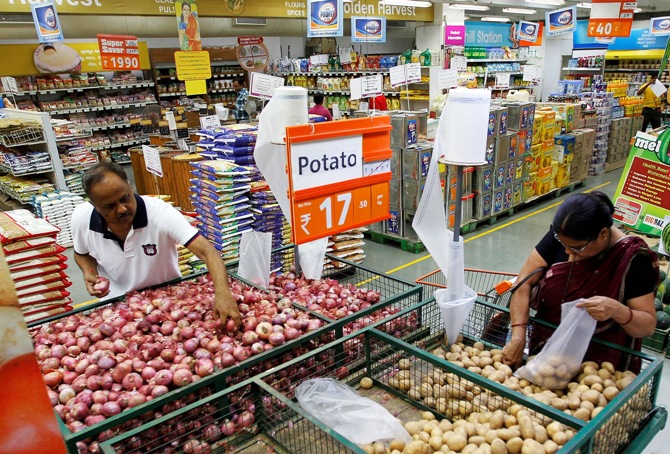
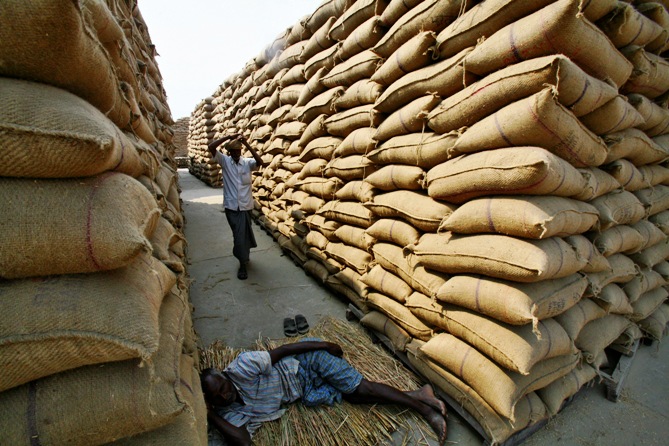
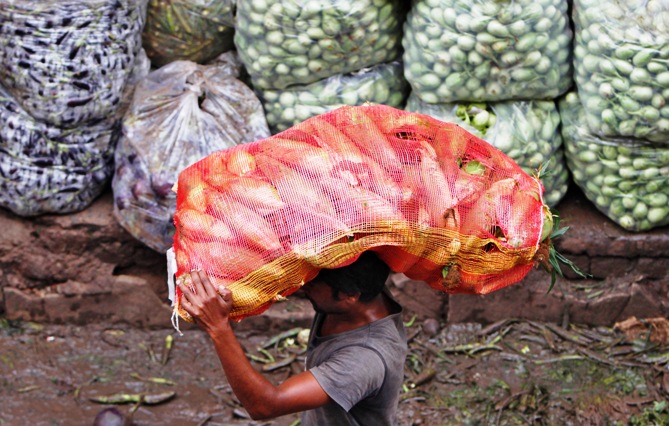
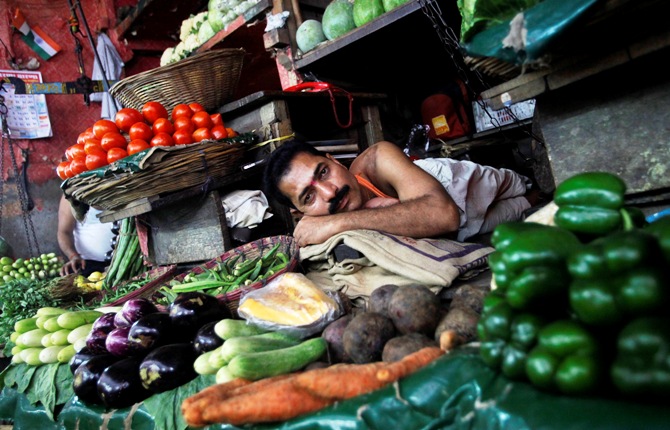
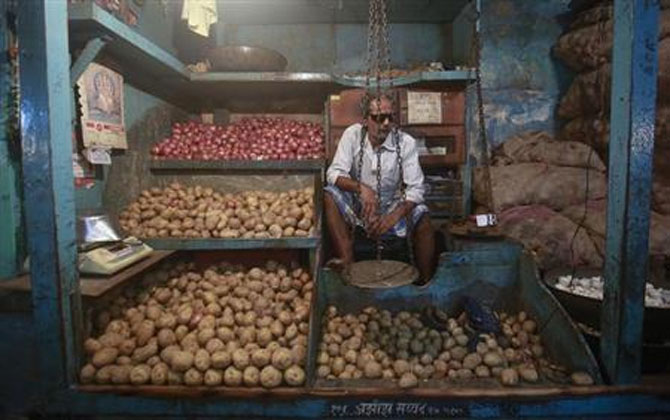
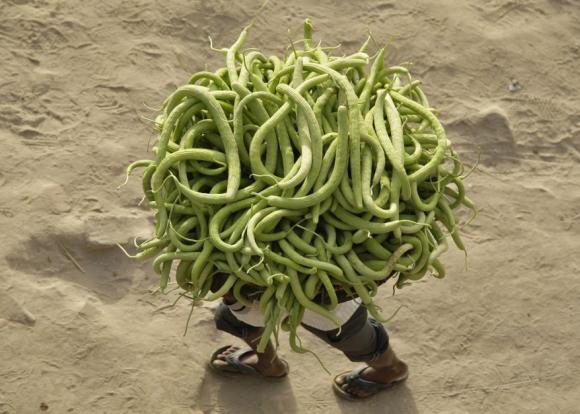
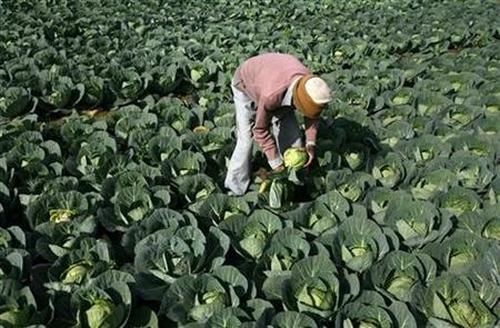

article